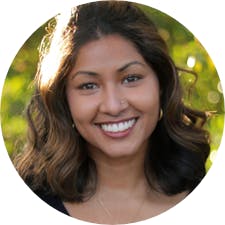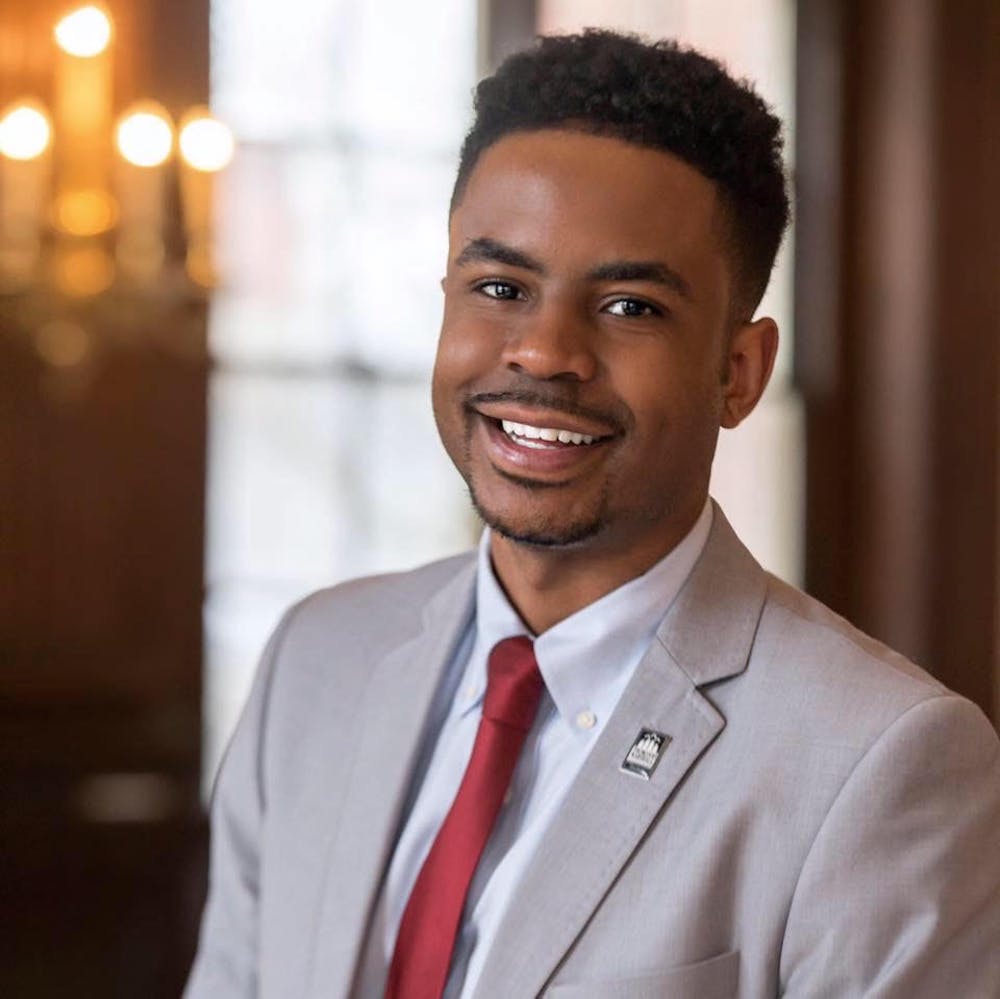The University appointed Vincent Harris as associate dean and new director of the Brown Center for Students of Color, capping off a national search and campus-wide controversy spanning nearly two years.
In his new role, Harris hopes to foreground his intersecting identities as a queer Black man, devote himself to his dual communities of Brown and Providence and acknowledge the complex history of the BCSC, he told The Herald in an interview.
Harris will leave his position as inaugural director of the Male Success Initiative-Fullerton at California State University-Fullerton, where he was responsible for developing the school’s first center serving men of color through academic advising and mentoring, leadership development, social engagement and community building.
“We were all impressed by his demonstrated track record of leadership and commitment to students and community,” Eric Estes, vice president for Campus Life and co-chair of the search committee, wrote in an email to The Herald.
Before his time in California, Harris worked at the Harvard College Women’s Center through a post-doctoral fellowship co-sponsored by Harvard’s Office of the President and the Office of Institutional Diversity and Equity.
“I was responsible for understanding the posts of support and what women needed at Harvard,” Harris recalled. “It was a very interesting role, as a cisgender man, having to do that.”
The experience, Harris said, will guide him in his support of women students in his new role.
“Dr. Harris has a wide range of experience with various marginalized groups, even ones he is not a member of, which is integral to programming and supporting students at the BCSC,” said Wassa Bagayoko ’21, one of the undergraduate members on the BCSC Director Search Committee.
Harris said his work will also be informed by his time teaching fifth- and sixth-graders through Teach for America Houston in 2007. He has also taught college courses about gender-related topics within African American studies as a faculty member in CSUF’s Ethnic Studies Department.
“Dr. Harris has been an unwavering advocate and effective champion for all students of color at predominantly and historically white public and private institutions,” said Loc Truong, interim director of the BCSC and assistant vice president for campus life engagement.
Harris discovered his passion for student affairs as a student at Auburn University in Alabama. Initially studying to become a veterinarian, he switched his major to mass communication and marketing with the intention of becoming a news producer or director, he said.
“It turned out, through my leadership and my involvement on campus, I just fell in love with this concept of college, and the concept of having other students enjoy their experiences as much as I do,” he added.
While Harris identifies as queer now, he grew up questioning his identity, unable to be his “full self” in his hometown of Birmingham, Alabama.
“I didn’t grow up as a queer Black boy in Alabama, I grew up as a questioning Black boy because I wasn’t allowed to be my queer, gay self,” Harris said. “I grew up not having a lot of happy days.”
But Harris reflects on his childhood and his hometown with pride rather than spite. He sees Birmingham as the heartbeat of the civil rights movement, a place that helped write the civil rights narrative across the country and also the world.
“I’m not coming into this role alone,” Harris said. “I’m bringing along my individual experiences, the histories of who I am as a cisgender, Black man growing up in Birmingham, Alabama and living in cities like Baton Rouge, Houston, and now bringing my learned and unlearned experiences from California into a space like Providence, Rhode Island.”
‘A long process’
The University’s pursuit of a new director of the BCSC has spanned the last two years, delayed by concerns over the lack of student input in the search committee. Joshua Segui, the center’s most recent director, was terminated by Nicole Truesdell, former assistant vice president for campus life, in summer 2019 after working at the BCSC for seven years.
The University formed a search committee that summer consisting of Truesdell, one other administrator, one staff member, one faculty member, one graduate student and two undergraduate students. In a September 2019 op-ed for The Herald, Shivani Guturu ’20, May Niiya ’20 and Jessica Jiang ’20.5 noted that the University never released an official announcement of Segui’s termination. They also wrote that the University made no attempt to replace the faculty member, and that one of the undergraduate members had left the committee by the start of the school year at the time of the op-ed.
Truesdell later named an interim director, Charisse Barron, for the BCSC in October 2019, a move that prompted a student sit-in in Truesdell’s office the day of the announcement. Several student and campus organizations condemned the lack of student involvement in Truesdell’s decision to hire an interim director, leading the University to temporarily pause the hiring process. Truesdell later stepped down from her position as assistant vice president for campus life in February 2020.
More than a year later, Truong announced in January 2021 that the BCSC Director Search Committee, at that point comprising three undergraduate students, two graduate students, four staff members and one faculty member, planned to find a new director by the summer.
Koya Partners, an executive search and strategic advising firm, informed the University’s search by reaching out to candidates from different sectors including higher education, nonprofit and government, according to Truong.
“I am proud of this search because it was truly an inclusive process that brought together many stakeholders in our Brown community, and I am delighted with our selection,” Truong wrote in an email to The Herald. In addition to the search committee, Truong added that the search was aided by a series of “listening sessions” with students, faculty and alumni of color.
Harris “is obviously a qualified individual, but he also possesses a unique ability to make you feel at home,” Bagayoko wrote in an email to The Herald. “That is such a rare talent, especially for someone who has never stepped foot into the (BCSC). Even through Zoom, his warm and deep care for students was abundantly clear, which further helped him stand out.”
“This has been a long process and I am so proud that Dr. Harris is the result,” Bagayoko added.
Ultimately, she is confident that the search process took student opinion into consideration. A vacancy left by a student who graduated was filled “halfway through the process” by a different undergraduate, she said, adding that “there were also several listening sessions before we even released the job description, and final candidates met with current students who then provided their feedback.”
‘A listening and learning tour’
Before discussing his goals for the BCSC, Harris emphasized that he is looking forward to first understanding the legacy and history of the center. Previously known as the Third World Center, the BCSC is entering its 45th year.
“I have to understand that I’m not coming into a location or a department or a center like the BCSC that’s starting from the beginning,” Harris said. “I’m looking forward to learning more about what the values are that really guided the creation of the Third World Center that really reformed and reconvened itself into what we now know as the BCSC.”
One of his main priorities is understanding the shared experiences of BIPOC undergraduate, graduate and medical students at Brown in order to provide them with more of a sense of belonging and also help eliminate any existing barriers that he might not know about.
Harris is also passionate about prioritizing mental health and wellness for students of color, and emphasized the importance of demonstrating those values from a position of leadership.
“I really have a goal of taking care of myself and being unapologetic about it so that the students and my team can know that they have to do the same,” Harris said.
As a queer Black man, Harris looks forward to working with the LGBTQ+ centers and student groups and speaking to his intersecting identities in his work at the BCSC.
In addition to his responsibilities working with the student community at Brown, Harris also anticipates serving Providence beyond the University’s campus.
“Another important priority is for Dr. Harris to connect with community leaders within the Providence public schools and nonprofit organizations that serve historically underrepresented students,” Truong wrote. “He will support important initiatives and serve as a thought partner in the work they do with students.”
“I want Dr. Harris to meet with and build relationships with various stakeholders on and off campus,” Truong added. “Additionally, Dr. Harris will reach out and connect with faculty who might be interested in collaborating with the BCSC to create opportunities for students to learn outside the classroom.”
Truong will serve as Dr. Harris’s supervisor, working with him to develop short- and long-term goals for the BCSC.
Though Bagayoko has recently graduated, she is excited for Harris to take over the BCSC and form the meaningful connections with students that she had previously found there.
“The center has undergone a good amount of change in the past two years,” Bagayoko said. “I hope that in the next year or so, Dr. Harris works with students and BCSC staff to understand those changes and construct a plan to move forward.”
Editors' note: The photo accompanying this article has been updated from a photo of the BCSC to one of Harris.

Gaya Gupta is the Senior Editor of Digital News. She previously covered diversity on campus. She is a junior from the San Francisco Bay Area studying computer science and English.





